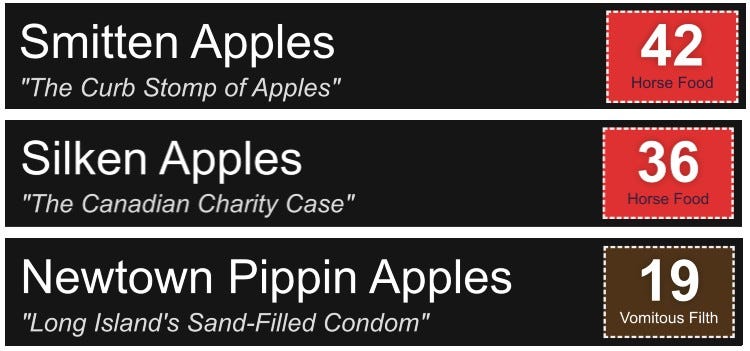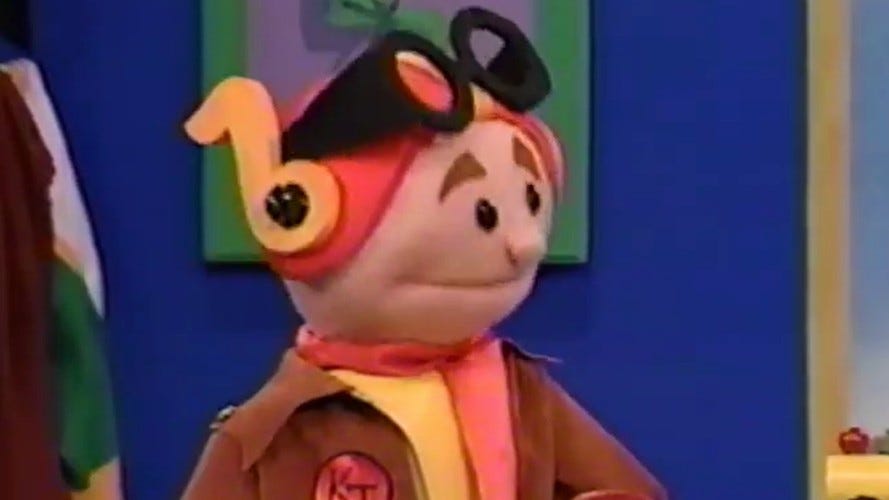Sadly, 2024 will be remembered as the year that Guinea worms finally defeated Jimmy Carter. In 1986, there were about 3.5 million cases of Guinea worm, with close to a million new cases being reported every year. That year, the Carter Center set out to eradicate the disease, and Carter later said that he wanted to see the last Guinea worm die before he does. But when President Carter passed away on Sunday, there were still 11 reported cases of Guinea worm worldwide this year, down from a peak of 890,000 in the ‘80s. So: total failure. Worms 1, Carter 0. You gotta hand it to the worms — I guess they wanted it more.
Despite President Carter’s humiliating failure, there were bright spots this year. Bashar al-Assad was deposed. Americans kept getting richer without knowing it. A team that’s not the Dallas Cowboys once again won the Super Bowl. One could focus on the negatives — the wars and deceit and the normalization of the word “rizz”1 — but that’s not what I’m here to do. I’m here to talk about things that I, personally, found pleasure in this year, of which there were exactly five.
Applerankings.com
The field of apple reviewing has fallen on hard times. The whole reason we read apple reviews is for a clear-eyed assessment of crispness and flavor, but now, most reviewers seem to skew their reviews based on perceptions of what they’re supposed to like. There’s barely any reason these days to read a review of, say, Vermont Gold apples, because of course the reviewer will say that they liked Vermont Gold — to say anything else would be professional suicide.
With applerankings.com, there is finally a site that cuts the bullshit. You no longer have to tolerate impossibly sunny reviews of Kissabel Rouge and Autumn Glory apples — applerankings.com will give you the straight truth. For example:
If only all sources of information were this honest. 2024 is the year in which we can unironically say that applerankings.com achieved more credibility than Scientific American.
The possible invention of a magical drug that will extend people’s lives and improve the federal budget.
For years, we’ve said: “Wouldn’t it be great if there was a pill that kept you from getting fat?” The only pills that claimed to do that: 1) Didn’t work, and 2) Were basically methamphetamine with a bit of added peppermint flavor. There was also a “pill” called “cigarettes”, and those did work, but they also made your breath smell like a gorilla taint and then killed you.
Suddenly, that magic weight loss pill (or injection) possibly exists. We still don’t know the long term impact of GLP-1 drugs like Ozempic, but the early results are striking: Overweight patients on semaglutide (a common GLS-1 drug) had fewer heart attacks and strokes. Other drugs appear to have positive effects on diabetes and maybe even Alzheimer’s. And — despite the fashionable lie that obesity doesn’t correlate with negative health impacts — a pill that greatly improves people’s health wouldn’t just, ya know, greatly improve people’s health: It would greatly improve the federal budget, which is about 30 percent health care spending.
Seems good, right? Potentially, though the main way that media covers new technology is to brainstorm things that could go wrong, and then use the fruits of that session to populate the headline: “Could [new technology] Lead to [terrible, if made-up thing]?” This tendency is why most people believe that driverless cars are mowing down people left and right, AI will soon take their job, and their spouse is being railed sideways by a quantum computer at this very moment. Ozempic gets the standard pessimistic media treatment, possibly boosted by the fact that some journalists spent the past decade promoting the idea that there’s nothing more noble and empowering than having the girth of the Apollo Lunar Module. But the reality seems to be that we might be on the cusp of a medical revolution, and I find that exciting.
Saturday Night Live becoming a Saturday Night Live museum.
I’ve really enjoyed Saturday Night Live in 2024! The main things I’ve enjoyed are:
Dana Carvey’s impression of a president
The Lonely Island music videos
The work of comedians like Martin Short, Maya Rudolph, and Chris Rock
It hasn’t escaped my attention that these are the same things I liked about SNL when I was a kid and young adult. SNL is unique in that they can call up an A-list movie star, tell them “the sketch is called 'Donkey Butthole’ and you play the butthole,” and quite possibly get a “yes”. This has caused an explosion of stunt casting, which is bad for young comics who know that a turn as a donkey butthole could be their ticket to stardom, but good for fans who want to see Pacino or Matt Damon in grey-and-pink face paint yelling “Keep that farmer away from me!”
Consider the recent “Five-Timers Club” sketch. The sketch features Tom Hanks, Paul Rudd, Martin Short, Tina Fey, Alec Baldwin, Scarlett Johansson, Kristen Wiig, Melissa McCarthy, Emma Stone, John Mulaney, and Jimmy Fallon. That’s almost a full assemblage of the A-list comic actors working today — I assume that Will Ferrell was held off-site like they do with one cabinet member in case there’s a disaster during the State of the Union address. And sure, the sketch is a reboot of a premise so old (34 years) that the first one features a cameo from an extremely fresh-off-the-boat Conan O’Brien. But, on the other hand…Tom Hanks! Paul Rudd! Hard to argue with that.
Saturday Night Live has given us 31 years of great comedy since its debut in 1975. As it approaches its 50th anniversary, the show is embracing its past, which is fine with me, because I strongly prefer the sense memory of enjoying the show in 1992 to most of what they’re doing now. I just wish The Simpsons could look at what once worked and decide: “Let’s just do that again.”
My son
My son had a good year — so good that for a while, I thought he might improve on his #2 ranking from last year. Unfortunately, his incomplete mastery of barn animal noises and a propensity for puking in the car left him stuck in second place.
You may think that putting my son second is harsh, but consider this: When my wife and I put him to bed, he has recently started saying “One Mama, two Dada.” I’m not joking — that’s real. So, turnabout is fair play: He ranks me second, I rank him second — it’s called “consequences”, son. I guess I should consider myself lucky that he doesn’t say “One Mama, two Kitty, three Elmo, four empty cardboard box, five Dada.”
Non-cats challenging cats for the pinnacle of comedy achievement
In the three years that I’ve done this end-of-year review, cats have taken the top spot every time. Cats have dominated the comedy landscape in a way that economists would argue should not be possible — their runaway success should be a signal to competitors to enter the market. This year, it finally happened, with other animals putting up big social media numbers with their hilarious antics.
Some star performers:
Part of me wondered if humans might be the animals to challenge cats’ recent comedy dominance. After all: We did dominate comedy from 250,000 B.C.E. through about 2016 — I thought we might have a Robert Downey Jr.-esque comeback in us. Alas, we fell short — so it goes. At least we now have a media landscape in which many animals compete for comedy stardom, and when that turtle rubbing its ass on a toothbrush does an SNL cameo in 20 years, I know that I’ll love it.
It means “charisma”, fellow olds.










“Most people believe that . . . their spouse is being railed sideways by a quantum computer at this very moment.”
Fools. The truth is that everyone’s spouse is being simultaneously railed sideways and not being railed sideways by a quantum computer, and they’re doing it / not doing it in the superposition.
> It would greatly improve the federal budget, which is about 30 percent health care spending.
Unfortunately, this part is actually wrong. Studies show that since healthier people live longer and most healthcare spending is on the elderly, reducing obesity actually increases lifetime healthcare spending.